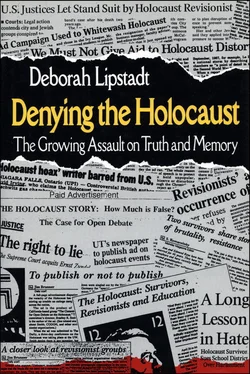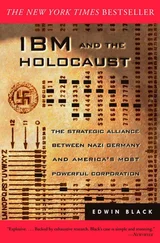Some of the more extreme revisionists, Barnes prominent among them, specifically castigated President Woodrow Wilson as responsible for the expense, losses, and miseries of the war and for the “arrogant and atrocious policies of France and England.” {9} They claimed that Wilson’s initial support of American neutrality was disingenuous. According to their account, Wilson had long been convinced that England could not defeat Germany without American aid. Consequently he decided to enter the war on England’s side as soon as possible and simply waited for the proper provocation to do so. {10} World War II revisionists would voice virtually the same arguments about President Roosevelt. They contended that, just like his predecessor Wilson, Roosevelt had long intended for the United States to enter the European fray and was only waiting for the right opportunity to make it happen. According to these critics, both men were less than honest with the American people and both led the United States down a disastrous foreign policy path.
In fact, much of the revisionist argument was historically quite sound. Germany was not solely culpable for the war. The Versailles treaty contained harsh and vindictive elements that placed so onerous a financial burden on Germany as to virtually guarantee the collapse of the Weimar regime. The French did have ulterior motives. The American munitions industry and bankers did benefit greatly from the war. The war did not bring peace to Europe or resolve any of its long-simmering disputes. The revisionist cause was strengthened by the fact that during the war the British propagated all sorts of false horror stories about German atrocities against civilians, including that the Germans used homicidal gas to kill noncombatants, employed babies for target practice, and mutilated Belgian women. The American public, unaware that a hoax was being perpetrated, proved particularly susceptible to these stories. {11} (This effort was so successful that an entire industry was born as a result: The field of public relations traces its origins directly to British and, to a lesser degree, American propaganda regarding the war.) Twenty years later, when reports reached Americans about Nazi Germany’s use of gas to kill Jews, the lingering impact of these false atrocity tales was evident. Americans dismissed the second spate of stories as yet another set of tall tales about the Germans. The problem, of course, was that this time the stories were true.
One of the reasons many Americans were intrigued by revisionism and supported the noninterventionism of the interwar period was that although the war had ended in victory, the outcome was far less than had been anticipated. During the war politicians such as Wilson nourished the notion that this was a crusade for democracy, when in fact it was more often a matter of distasteful national interest. {12} For many people, including World War I revisionists, these efforts to cast the war in grandoise, hyperbolic terms backfired. They were bitterly disappointed that the war had been neither the democratic crusade nor the war to end all wars Wilson had promised.
Neither did it establish peace among the war-weary peoples of the earth. As the situation in Europe became increasingly volatile in the interwar years, growing numbers of Americans, the revisionists and isolationists foremost among them, became embittered and disillusioned. {13} They were convinced that an unsuspecting American public had been duped and that American intervention in the war had been an unmitigated disaster not only for the United States but for the world. {14} Their ex post facto attacks were bitter and unwavering. During the interwar period the debate over World War I’s origins provided a framework for the passionate discussion of American foreign policy. The revisionists’ aim was to alter public opinion. {15} Revisionism became the prism through which future policies were refracted. {16}
Harry Elmer Barnes is the only link between these revisionists and Holocaust denial. But the revisionists’ arguments were nonetheless a perfect foil for the deniers. Their contentions about government chicanery, mistreatment of Germany, and atrocity reports and their desire to change public attitudes were too tempting to be ignored. The deniers would hijack this movement and use it for their own purposes.
———
On both the home and international fronts the interwar period was a turbulent time. Critics of American foreign policy were to be found at all points of the political spectrum. {17} On Capitol Hill, liberals, conservatives, and progressives faulted Roosevelt and the direction of his overseas policies. {18} In certain quarters there was a conviction that there existed a conspiracy or a series of conspiracies to do America harm. Red scares took on the character of a witch-hunt. A deep-seated xenophobia tinged with significant antisemitism emerged in the United States. As the impact of the depression intensified, there was also a growing sentiment in various quarters that someone—a group, ideology, financial interest—was to blame. The ramifications of these fears could be seen in a variety of arenas.
The passage of the Immigration Act of 1924 was motivated by a desire to limit the number of people not of Anglo-Saxon Protestant background who could enter the country. Opponents of the new type of immigrants charged that they were changing the face of America. Passed when Americans felt financially secure, the act won even stronger support as the economic and international situation deterioriated. The depression fostered a deep distrust of business and banking interests. For many people the culprits responsible for this steadily deteriorating situation were easily identifiable.
In 1935, Sen. Gerald P. Nye (R-ND) convened hearings on the role of shipbuilders, munitions manufacturers, and international bankers in World War I. The premise of the hearings was that it was not only political leaders who bore the blame for getting the country into this war. “Wicked” Wall Street bankers aided and abetted by “sinister” arms merchants were part of an insidious self-enriching effort to lure the United States into the conflagration. {19} The Nye committee hearings aroused intense isolationist sentiment in the United States and had profound implications for American foreign policy. {20} Though they found no evidence to prove Wall Street responsible for precipitating American involvement, some senators believed the hearings the most effective medium for fostering American isolationism during this period. {21} When Sen. Homer T. Bone (D-WA), a vehement isolationist, observed in 1935 that the war had been “utter social insanity,” and that America had “no business” being in it, his view resonated with millions of people. {22}
In certain quarters there was little doubt as to the identity of those responsible for the dire situation facing the United States. Roosevelt was accused of pandering to “Jewish interests” with his foreign policy. Sen. Hiram W. Johnson (R-CA), echoing a view harbored by a growing number of antisemites, complained in February 1939 that all the Jews were “on one side, wildly enthusiastic for the President and willing to fight to the last American.” He charged that Jews’ loyalties were to their group and not to their nation. Arrayed against this powerful entity, Johnson continued, were “those of us—a very considerable number who are thinking in terms of our own country, and that alone.” Johnson argued that though Germany’s treatment of its Jewish population was at the heart of the struggle over American policy in Europe, no one was brave enough to say so because they were afraid of “offending the Jews.” He accused Roosevelt, whom he believed had a “dictator complex,” of having found the Jews powerful supporters who vociferously demanded that he provide aid for “their people, who neither live here, nor have anything in common with our country.” {23}
Читать дальше












